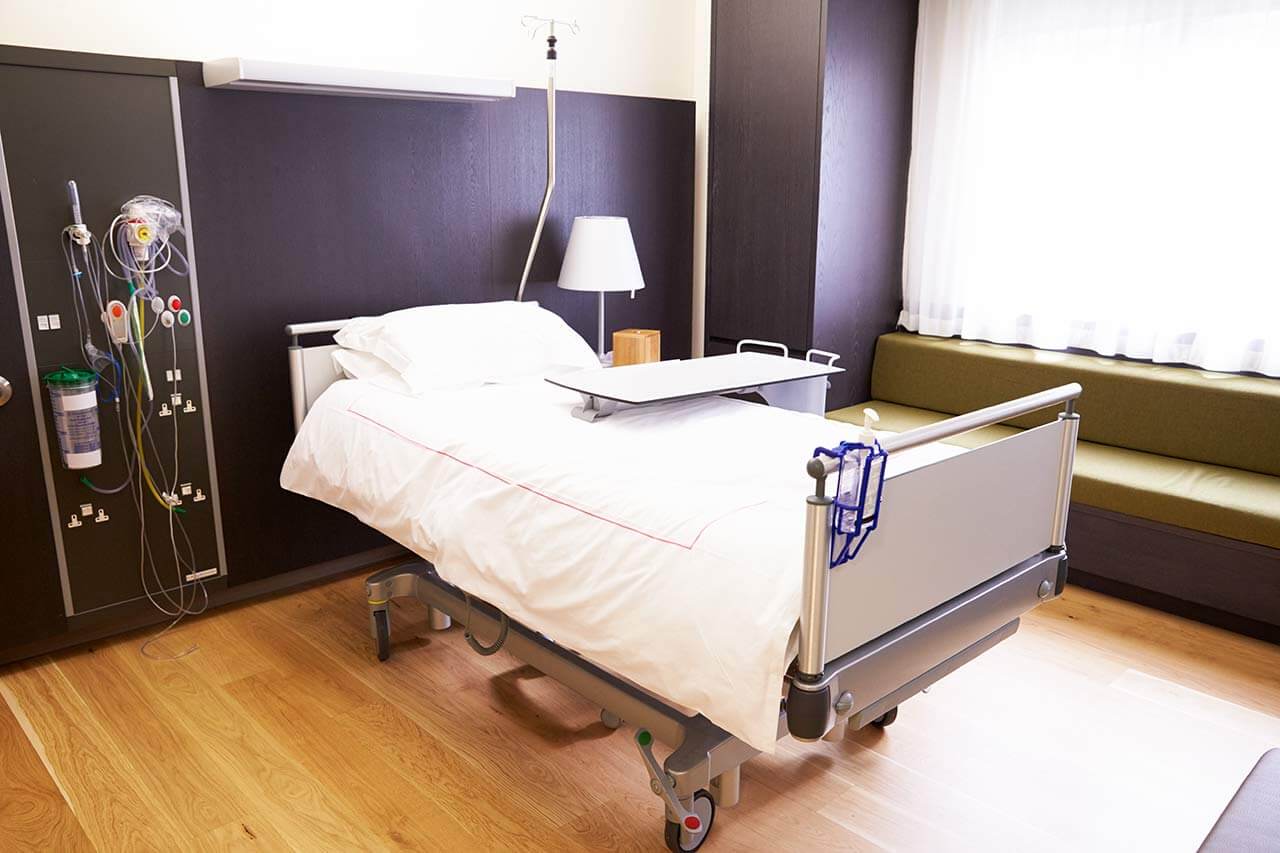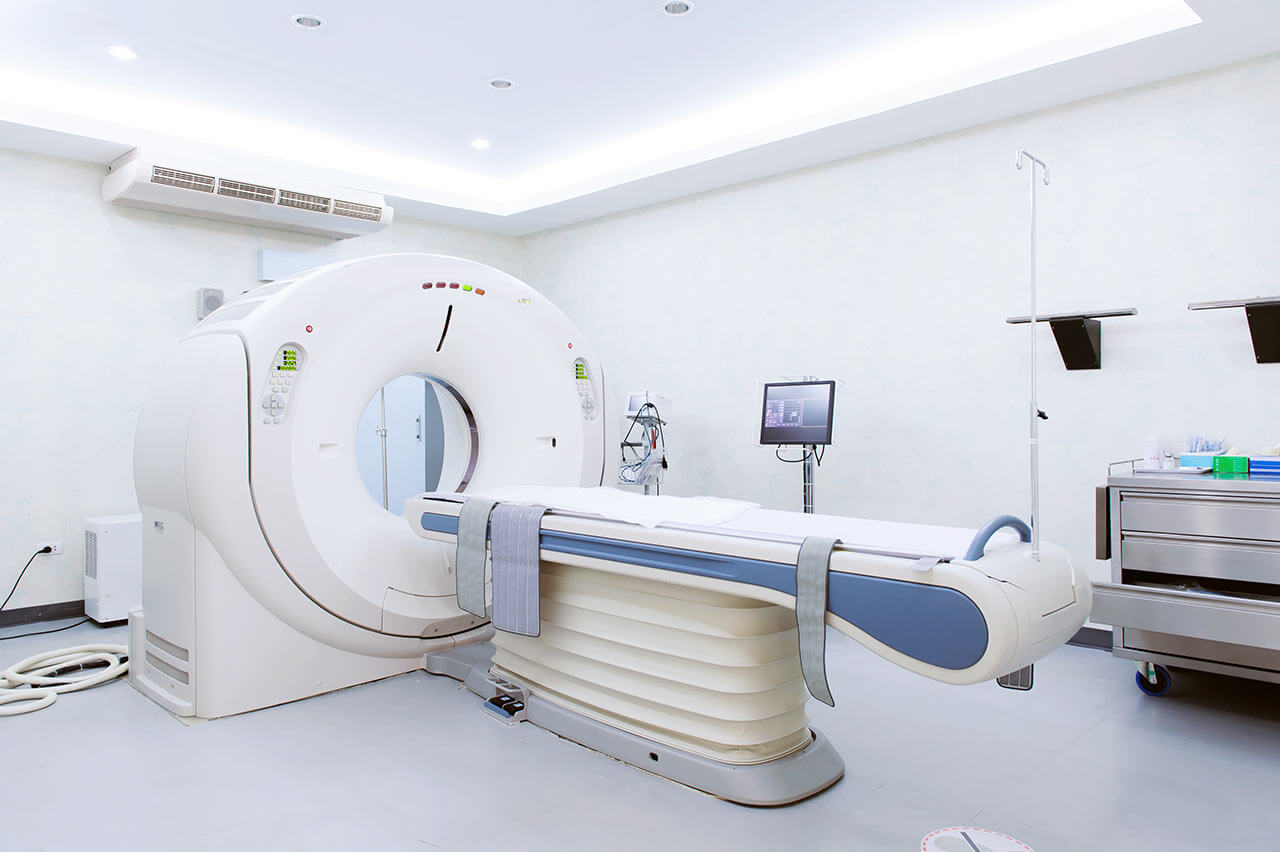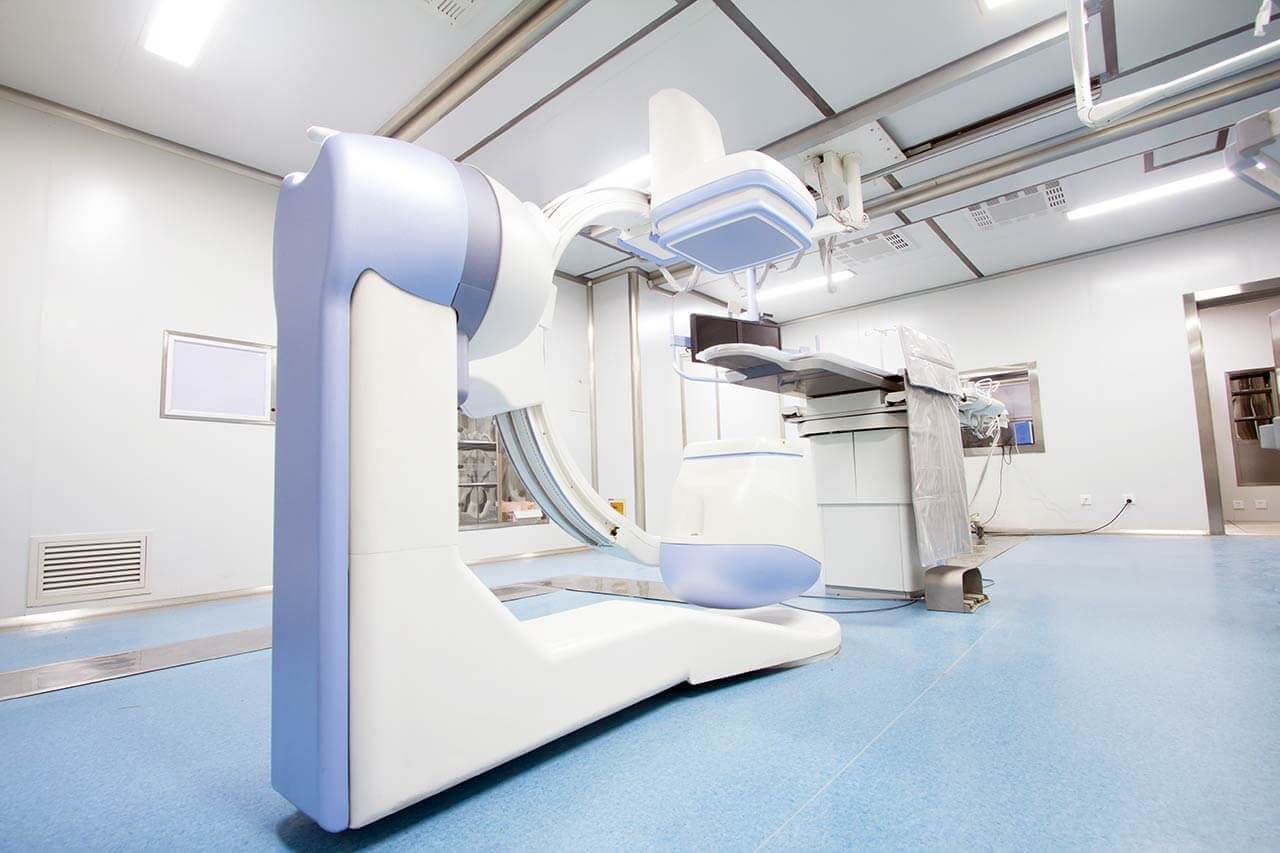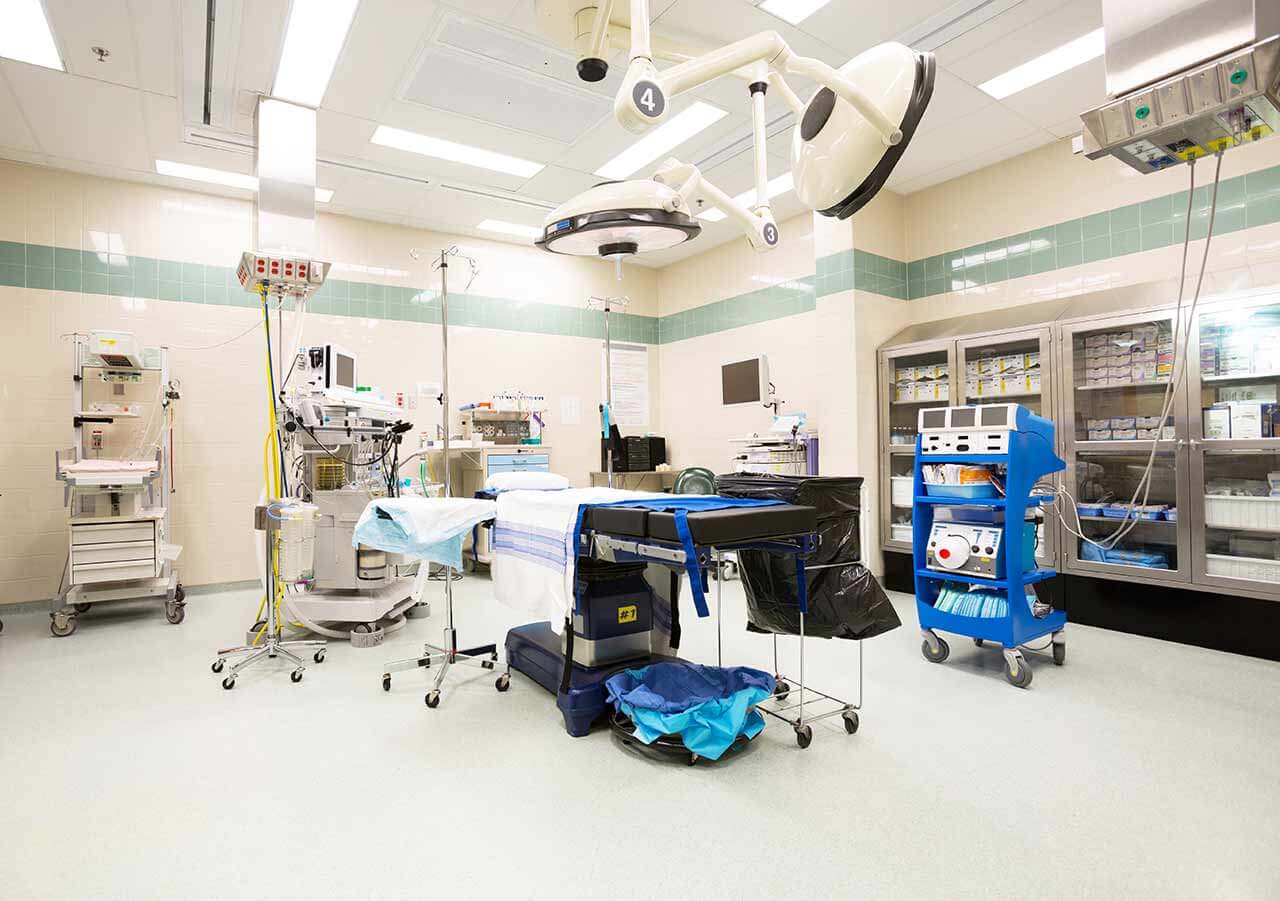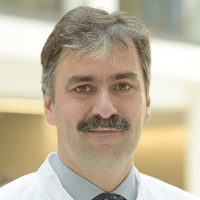
The program includes:
- Initial presentation in the clinic
- clinical history taking
- physical examination
- laboratory tests:
- complete blood count
- general urine analysis
- biochemical analysis of blood
- TSH-basal, fT3, fT4
- indicators of inflammation
- indicators blood coagulation
- x-ray/ MRI examination
- preoperative care
- medial epicondylectomy
- symptomatic treatment
- cost of essential medicines
- nursing services
- full hospital accommodation
- elaboration further recommendations
Service
You may also book:
 BookingHealth Price from:
BookingHealth Price from:
About the department
According to the Focus magazine, the Department of Adult and Pediatric Orthopedics, Trauma Surgery, Foot Surgery and Hand Surgery at the Charite University Hospital Berlin is one of the best medical facilities in Germany in its areas of specialization!
The department offers its patients modern conservative and surgical treatment of diseases of the musculoskeletal system. The department's priority specialties include knee and hip surgery, including primary and revision arthroplasty, surgical interventions on the spine, shoulder and elbow surgery, operations for musculoskeletal malignancies, and treatment of traumatic injuries of varying severity. The department enjoys a reputation as one of the largest and most reputable medical complexes of its kind in Germany, where more than 8,200 inpatients are treated every year. The department's medical team successfully performs more than 8,500 surgical procedures each year in 8 high-tech operating rooms, which testifies to the excellent qualifications and vast experience of the healthcare facility's specialists. The department also provides medical care for young patients with special emphasis on the treatment of hip dysplasia, slipped capital femoral epiphysis, Perthes disease, scoliosis, osteomyelitis, and benign bone neoplasms. The medical institution has exceptional competence in the treatment of bone and soft tissue sarcomas – certification as a specialized center by the German Cancer Society (DKG). In addition, the department has the status of an interregional Trauma Center in the Berlin and Brandenburg area, certified by the German Trauma Society (DGU). The department is headed by Prof. Dr. med. Carsten Perka.
The department provides the full range of conservative and surgical treatment of knee pathologies with the very latest medical developments. Of particular interest to the department's specialists are arthroscopic procedures and partial and total knee replacement surgery. Patients are cared for by a highly qualified team of 15 specialized surgeons. With advanced knowledge, expert experience, and the most advanced surgical technologies, the specialists perform more than 2,000 knee surgical procedures annually. The majority of procedures are performed for knee arthrosis (gonarthrosis). As the pathology progresses, the cartilaginous tissue of the knee joint is destroyed, which threatens impaired mobility and loss of limb support, up to disability. The treatment plan is developed on an individual basis after studying anamnesis and a comprehensive diagnosis: in the early stages, the orthopedists of the department use only conservative treatments or perform arthroscopic procedures, and in the advanced stages, partial or total knee arthroplasty is prescribed. Partial arthroplasty involves replacement of the part of the joint affected by the degenerative process. It is a minimally invasive procedure performed under local anesthesia. The hospital stay is 6-8 days. In the case of total knee replacement, the surgeon replaces all of its elements, both the medial (inner) and lateral (outer) parts of the knee joint. Total knee replacement is also minimally invasive. The hospital stay for a total knee replacement is 7-10 days. After arthroplasty, a highly professional team of physiotherapists works with the patient, whose task is to restore mobility in the postoperative period.
The medical facility has an excellent record in hip surgery, and operations for this range of pathologies are performed here on an almost daily basis. The department provides medical care for patients with hip arthrosis (coxarthrosis), femoral head avascular necrosis, hip dysplasia, femoroacetabular impingement, hip labral injuries, acetabular and femoral neck fractures, hip inflammation, and other conditions. The department's orthopedic surgeons have access to the full range of modern treatment options, from physiotherapy to arthroscopic procedures and hip replacement surgery. Before prescribing treatment, the patient undergoes a complete diagnostic examination. Throughout the therapeutic process, the department's specialists strive to preserve hip joint function and eliminate pain with the least invasive treatment: conservative therapy or arthroscopy is considered first, with hip replacement surgery as the last resort. Hip arthroplasty is performed here using minimally invasive techniques and computer navigation, which is a great advantage for the patient.
The medical team of the department is competent in the diagnosis and treatment of children's orthopedic diseases and injuries, including their consequences in adulthood. In the case of such pathologies, the doctors strive not only to cure the young patient, but also to ensure the normal development of the growing organism. The most common conditions in the department's clinical practice are hip dysplasia, slipped capital femoral epiphysis, Perthes disease, foot deformities, axial deformities of the lower extremities, and leg length discrepancy. Therapeutic options in pediatric orthopedics and traumatology include drug therapy, physiotherapy, and surgical treatment. Almost all operations are performed using minimally traumatic surgical techniques. The treatment plan is always developed on an individual basis, taking into account the specifics of the clinical case.
The department has a competent team of specialists in foot surgery. The doctors of this profile consult patients with traumatic injuries and congenital and acquired foot deformities. Special experience has been gained in the treatment of severe forms of ankle arthrosis and rheumatoid arthritis with ankle involvement. Arthroscopic procedures and arthroplasty are successfully performed here to treat the above conditions. In addition, the department's specialists are highly professional in the treatment of foot dysplasia. The healthcare facility also provides medical care to patients with diabetic foot syndrome, ankle cartilage lesions, and sports foot injuries.
Hand surgery is also an important part of the daily clinical practice of the department's medical team. This area is responsible for the comprehensive care of patients with acute injuries of the hand, wrist and elbow joints, as well as degenerative pathologies of the wrist joint and hand deformities. Treatment is provided in both inpatient and outpatient settings, depending on the severity of the clinical case. Surgical procedures for hand pathologies and injuries are performed using arthroscopic and microsurgical techniques.
The department's medical services include the following options:
- Orthopedics
- Knee surgery
- Partial and total knee replacement surgery for arthrosis, including revision arthroplasty
- Arthroscopic procedures for knee ligament ruptures
- Arthroscopic procedures for meniscus injuries
- Arthroscopic procedures for patellar instability
- Hip surgery
- Partial and total hip replacement surgery, including revision arthroplasty
- Arthroscopic procedures on the hip
- Reconstructive plastic surgery for congenital and acquired hip deformities
- Shoulder surgery
- Arthroscopic subacromial decompression for impingement syndrome
- Arthroscopic clavicle resection for shoulder arthrosis
- Arthroscopic arthrolysis for frozen shoulder
- Reconstructive plastic surgery for rotator cuff tears
- Arthroscopic tenodesis of the biceps tendon
- Arthroscopic procedures for lesions of the upper portion of the glenoid labrum
- Arthroscopic stabilizing procedures for acute and chronic shoulder injuries and clavicle fractures
- Arthroscopic and open stabilizing procedures for shoulder dislocation
- Arthroscopic reconstructive plastic surgery of the glenoid cavity of the scapula
- Arthroscopic procedures for fractures in the glenoid cavity of the scapula
- Arthroscopic procedures for shoulder cartilage lesions: microfracture, autologous chondrocyte implantation, and mini-incision shoulder arthroplasty
- Anatomical and inverse shoulder arthroplasty in primary and secondary osteoarthrosis
- Revision shoulder arthroplasty
- Arthroscopic procedures for shoulder girdle bone fractures
- Reconstructive or stabilizing procedures on the sternoclavicular joint in arthrosis
- Elbow surgery
- Arthroscopic procedures for elbow arthrosis
- Arthroscopic procedures for loose body removal and cartilage grafting
- Refixation of the distal biceps tendon
- Arthroscopic procedures for epicondylitis
- Arthroscopic procedures for elbow stiffness
- Arthroscopic procedures for elbow instability
- Arthroscopic procedures for forearm calcification
- Neurolysis
- Arthroscopic procedures for fractures
- Elbow replacement surgery
- Surgical treatment of musculoskeletal tumors
- Surgery for resection of benign and malignant soft tissue and bone tumors
- Prosthetic and plastic reconstruction after tumor resection surgery
- Radiofrequency and thermal ablation for benign soft tissue and bone tumors
- Septic surgery of the musculoskeletal system
- Surgery for infectious lesions of prostheses
- Surgery for infectious bone lesions
- Surgery for inflammatory processes in the vertebral bodies
- Surgery for infectious joint lesions
- Spinal surgery
- Surgery for spinal fractures of any severity
- Surgery for intervertebral disc herniations
- Surgery for spinal canal stenosis
- Surgery for spondylolisthesis
- Surgery for scoliosis and kyphosis
- Surgery for inflammatory spinal diseases
- Surgery for spinal tumors and metastases
- Pediatric orthopedics
- Surgery for hip dysplasia
- Surgery for slipped capital femoral epiphysis
- Surgery for Perthes disease
- Surgery for osteochondritis dissecans
- Surgery for idiopathic and neuromuscular scoliosis
- Surgery for leg length discrepancy and axial deformities of the lower limbs
- Surgery for benign bone tumors
- Surgery for hereditary cartilaginous exostoses
- Surgery for osteomyelitis
- Surgery for skeletal dysplasia
- Treatment of neuro-orthopedic diseases
- Conservative and surgical treatment of the consequences of neuromuscular diseases of the musculoskeletal system in children and adolescents
- Botulinum therapy for the elimination of contractures and pain
- Arthroplasty and arthroscopy for degenerative changes in the musculoskeletal system caused by neuromuscular diseases
- Conservative and surgical treatment of congenital muscular torticollis
- Conservative treatment of cerebral palsy
- Conservative and surgical treatment of spina bifida
- Conservative and surgical treatment of muscular dystrophy
- Knee surgery
- Trauma surgery
- Conservative and surgical treatment of musculoskeletal injuries of varying severity, including multiple injuries
- Foot surgery
- Forefoot surgery
- Surgery for hallux valgus and hallux rigidus
- Surgery for hammer toes and claw toes
- Surgery for deformities after the Keller-Brandes operation
- Surgery for metatarsalgia
- Surgery for digitus quintus varus
- Rearfoot surgery
- Surgery for upper and lower ankle arthrosis
- Surgery for congenital and acquired axial deformities of the leg and foot
- Arthrolysis
- Surgical treatment of cartilage tissue lesions and arthrosis
- Joint-preserving corrective osteotomy and corrective arthrodesis for congenital or post-traumatic axial deformities
- Ankle replacement surgery
- Surgery for osteochondral lesions of the talus
- Surgical correction of foot deformities
- Reconstructive surgery for incorrect position of the rearfoot
- Surgery for flat valgus foot
- Surgery for hollow foot
- Surgery for clubfoot
- Surgery for metatarsus adductus
- Conservative and surgical treatment of injuries and fractures, including sports injuries
- Conservative and surgical treatment of diabetic foot syndrome
- Conservative and surgical treatment of heel spurs
- Conservative and surgical treatment of Ledderhose disease
- Conservative and surgical treatment of nerve ending compression syndromes
- Forefoot surgery
- Hand surgery
- Conservative and surgical treatment of hand and finger fractures and dislocations
- Conservative and surgical treatment of scaphoid pseudarthrosis
- Conservative and surgical treatment of tendon, flexor muscle, and extensor muscle injuries
- Conservative and surgical treatment of skier's thumb
- Conservative and surgical treatment of trigger finger
- Conservative and surgical treatment of hand nerve injuries
- Conservative and surgical treatment of finger arthrosis
- Conservative and surgical treatment of rhizarthrosis
- Conservative and surgical treatment of peripheral nerve compression syndromes
- Conservative and surgical treatment of Dupuytren's contracture
- Conservative and surgical treatment of de Quervain's tenosynovitis
- Conservative and surgical treatment of infectious hand lesions
- Conservative and surgical treatment of ganglion
- Conservative and surgical treatment of complex regional pain syndrome
- Conservative and surgical treatment of wrist arthrosis
- Tendon transplantation for chronic injuries
- Other medical services
Curriculum vitae
Higher Education and Postgraduate Training
- 1985 - 1991 Medical studies, Humboldt University of Berlin.
- June 1991 Medical license.
- June 1994 Doctorate, Department of Adult and Pediatric Orthopedics, Trauma Surgery, Foot Surgery and Hand Surgery, Charite University Hospital Berlin.
- October 2000 Privatim docens, Department of Adult and Pediatric Orthopedics, Trauma Surgery, Foot Surgery and Hand Surgery, Charite University Hospital Berlin.
- September 2005 Professorship for Orthopedics.
Professional Career
- 1991 - 1996 Residency, Department of Adult and Pediatric Orthopedics, Trauma Surgery, Foot Surgery and Hand Surgery, Charite University Hospital Berlin.
- October 1996 Board certification in Orthopedics.
- December 1996 Consulting Orthopedist, Department of Adult and Pediatric Orthopedics, Trauma Surgery, Foot Surgery and Hand Surgery, Charite University Hospital Berlin.
- December 1996 - September 2003 Consulting Orthopedist, Department of Adult and Pediatric Orthopedics, Trauma Surgery, Foot Surgery and Hand Surgery, Charite University Hospital Berlin; Head Physician of the Center for Joint Replacement Surgery, Charite University Hospital Berlin.
- Since 1999 Organizer of national and international operational technical courses on hip and knee joint replacement surgery (for 3 years).
- Since October 2003 Head Physician, Department of Adult and Pediatric Orthopedics, Trauma Surgery, Foot Surgery and Hand Surgery, Charite University Hospital Berlin.
- Since 2005 Extraordinary Professorship for Orthopedics, Charite University Hospital Berlin.
- 2013 Chairman Invited Speaker of the American Hip Society of the American Academy of Orthopaedic Surgeons (AAOS).
- Since 2015 Medical Director, Charite Musculoskeletal Surgery Center (CMSC), Charite University Hospital Berlin.
- 2019 President of the German Society of Orthopedics and Orthopedic Surgery (DGOOC).
Clinical Interests
- Hip and knee replacement replacement, including revision procedures.
- Treatment of bone infections and prosthetic infections.
- Reconstructive pelvic surgery.
- Periacetabular, femoral, and tibial corrective osteotomy.
- Foot surgery.
Publications
- Author of over 400 publications in international editions.
- Editor and author of over 50 books and book chapters.
Memberships in Professional Societies
- German Society of Orthopedics and Orthopedic Surgery (DGOOC).
- German Trauma Society (DGU).
- Northern German Orthopedic Association (NOV).
- American Academy of Orthopaedic Surgeons (AAOS).
- International Hip Society (IHS).
Photo of the doctor: (c) Charité – Universitätsmedizin Berlin
About hospital
According to the reputable Focus magazine, the Charite University Hospital Berlin ranks 1st among the best healthcare facilities in Germany!
The hospital is one of the largest and leading university medical complexes in Europe, and also consistently holds leading positions in the international medical arena. The Charite operates on the basis of the Faculty of Medicine of the Free University of Berlin and the Humboldt University of Berlin. Patients are offered modern diagnostics and treatment with the very latest methods, many of which were developed by professors and scientists of the medical complex. More than half of all German Nobel Prize winners in medicine and physiology, such as Emil von Behring, Robert Koch, and Paul Ehrlich, studied and worked at the Charite University Hospital Berlin. The medical complex includes more than 100 specialized departments and institutes, which helps to ensure that patients receive care in all existing medical specialties. The hospital has exceptional experience in treating complex clinical cases.
Each year, the hospital treats more than 137,800 inpatients and more than 787,700 outpatients. The hospital has a bed capacity of 3,293 beds. A huge medical team consisting of 5,670 scientists and doctors and more than 6,000 nurses work for the benefit of the patients. The main task of all specialists of the medical facility is to restore the patient's health or save his life in critical cases. The hospital has a friendly atmosphere where every patient feels care, respect and empathy.
The Charite University Hospital Berlin is generously funded by the German government, which is why it offers patients the latest generation of excellent equipment and comfortable infrastructure. The Charite medical complex is equipped with da Vinci robotic surgery systems, laser technologies, equipment for endovascular catheter-based interventions, neuronavigation devices, intraoperative monitoring systems, equipment for proton therapy available only in the most advanced medical centers in the world, and many other technologies. All these resources, combined with the experience and professional skills of the hospital's doctors, are the key to providing the most effective and safe treatment in accordance with the highest international medical standards.
The hospital is recognized with a huge number of quality certificates, including DIN EN ISO 9001:2015, certificates from the German Cancer Society (DKG), the German Society for General and Visceral Surgery (DGAV), the German Society for Thoracic Surgery (DGT), the German Hernia Society (DHG), and the ERAS Society.
The Charite University Hospital Berlin is a benchmark in the European healthcare system. Patients therefore receive impeccable medical service, quality care, and personalized service that puts the patient and their individual needs first.
Photo: (с) depositphotos
Accommodation in hospital
Patients rooms
The patients of the Charite University Hospital Berlin live in comfortable rooms made of modern design. Each room is equipped with an ensuite bathroom with a toilet and a shower. The standard room furnishing includes an automatically adjustable bed, a bedside table, a wardrobe for storing clothes, a table and chairs for receiving visitors, and a TV. If desired, Wi-Fi access can be provided. The hospital also offers enhanced-comfort rooms.
Meals and Menus
The patient and his accompanying person have a daily choice of three menus. If for any reason, you do not like the food, you will be offered an individual menu. Please inform the medical staff about your dietary preferences before the treatment.
Further details
Standard rooms include:
Religion
Religious services are available upon request.
Accompanying person
During the inpatient program, an accompanying person may stay with you in a patient room or at the hotel of your choice.
Hotel
During the outpatient program, you can live at a hotel of your choice. Managers will help you to choose the most suitable options.
The hospital offers a full range of laboratory tests (general, hormonal, tests for infections, antibodies, tumor markers, etc.), genetic tests, various modifications of ultrasound scans, CT scans, MRI and PET / CT, angiography, myelography, biopsy and other examinations. Treatment with medications, endoscopic and robotic operations, stereotaxic interventions is carried out here, modern types of radiation therapy are also used. The hospital offers patients all the necessary therapeutic techniques.
- Proton therapy
- CyberKnife treatment
- Hyperthermic intraperitoneal chemotherapy (HIPEC)
- PSMA therapy with Lutetium-177
- Joint replacement in adults and children
These are oncological diseases, benign neoplasms of the brain and spinal cord, heart valve defects, diabetes mellitus and its complications, joint diseases and other pathologies.
- Neurosurgery
- Oncology
- Plastic and reconstructive surgery
- Interventional radiology
- Proton therapy (Proton Therapy Center BerlinProtonen)
The medical team includes more than 4,225 highly qualified scientists and doctors.
